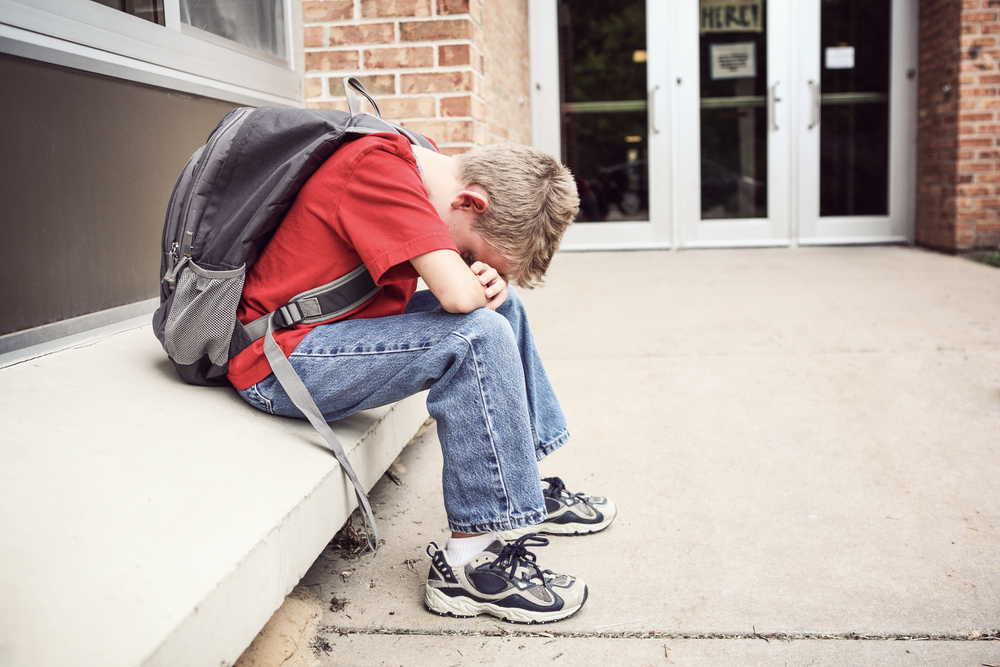Childhood is the foundation for how people learn to give and receive love. If those formative years lacked affection, security, or validation, it can leave deep and lasting imprints on emotional development. These effects often appear later in life, shaping how someone communicates, connects, and perceives themselves. They can remain unnoticed until a pattern becomes clear. Below are ten behaviors that often signal someone was rarely shown love as a child, explained with both emotional and psychological insight.
1. Struggling to Accept Compliments

If you were not praised or encouraged during childhood, compliments in adulthood can feel uncomfortable or even suspicious. Instead of simply saying thank you, you might deflect, minimize your achievements, or insist it was nothing. This comes from a learned belief that praise is either insincere or that you are undeserving of it. Over time, this self-doubt can erode self-esteem because positive feedback does not register as genuine reinforcement. The more you reject compliments, the harder it becomes to internalize success and see yourself in a positive light.
2. Difficulty Trusting Others

A childhood without consistent love often forces a person to become emotionally self-reliant. You may have learned early that relying on others was risky, leading to constant caution in relationships. Even with trustworthy people, you might hold back emotionally, expecting disappointment or betrayal. This protective habit can keep you safe from emotional harm, but it also prevents deep bonds from forming. Trust requires vulnerability, and if that was never rewarded in your youth, the act of trusting can feel unnatural and threatening.
3. Overthinking Social Interactions

When affection was scarce, children often became hyper-aware of tone, expression, and mood to avoid conflict or rejection. This heightened awareness can carry into adulthood as constant overthinking of conversations. You might replay what you said, wondering if you offended someone, even when there is no sign you did. This is not just shyness but a conditioned response to past environments where approval felt uncertain. The mental energy spent on analyzing every word and gesture can cause unnecessary anxiety and prevent relaxed, genuine interactions.
4. Avoiding Emotional Vulnerability

https://www.shutterstock.com/image-photo/unhappy-teen-girl-covering-face-hands-2288855249
If showing emotions as a child was met with indifference, criticism, or neglect, you may have learned to protect yourself by staying guarded. As an adult, you might avoid sharing deep feelings, choosing to keep conversations on safe and neutral topics. While this prevents potential rejection, it also limits the closeness you can have with others. Without emotional openness, relationships can remain surface-level, leaving you with a sense of isolation even when surrounded by people.
5. Feeling Unworthy of Love

Without nurturing and affirmation early in life, it is common to develop a belief that love must be earned or that you are inherently undeserving. This can lead to accepting less than you deserve, staying in toxic relationships, or self-sabotaging when things go well. It can also mean constantly seeking validation from people who cannot or will not provide it. This cycle reinforces the old belief that you are not good enough, making it harder to recognize healthy love when it appears.
6. Difficulty Setting Boundaries

When a child’s needs are overlooked, they may grow up believing their comfort is less important than pleasing others. As an adult, this can result in saying yes when you want to say no, tolerating mistreatment, or neglecting your own needs to keep the peace. This lack of boundaries may be rooted in fear of rejection or conflict. While it might make relationships feel smoother in the moment, it often leads to resentment, burnout, and a loss of self-respect.
7. Overachievement as a Coping Mechanism

Some people respond to a lack of love by throwing themselves into constant achievement. Success becomes a way to earn the approval they missed in childhood. While this drive can lead to career milestones and accomplishments, it can also create chronic stress, perfectionism, and an inability to rest without guilt. Even after achieving significant goals, there may be little lasting satisfaction because the underlying need for unconditional acceptance remains unmet.
8. Fear of Abandonment

If love was inconsistent, you may carry a deep fear that people will leave once they know the real you. This can lead to overcompensating in relationships, becoming overly dependent, or avoiding commitment altogether to protect yourself from loss. This fear is less about the present and more about old emotional wounds. Even when someone gives consistent affection, part of you may still expect the connection to disappear without warning.
9. Emotional Numbness

Some people adapt to emotional neglect by shutting down their feelings. This can make life feel flat, even during moments that should be joyful or moving. You may notice difficulty crying, feeling excited, or connecting emotionally with others. While numbness shields you from pain, it also blocks positive emotions like love and happiness. This can make relationships and life experiences feel hollow, even when they appear fulfilling from the outside.
10. Trouble Identifying Your Own Needs

Growing up without love often means becoming skilled at reading and meeting others’ needs while ignoring your own. As an adult, this can turn into chronic people-pleasing and a disconnection from your own desires. You might feel unsure of what makes you happy, or guilty for putting yourself first. Without intentional effort, this can lead to exhaustion, resentment, and a lack of personal fulfillment.
Recognizing These Patterns

These behaviors are not permanent and do not define a person’s worth. They are learned responses to an environment that did not provide the emotional support every child needs. Recognizing these patterns is the first step toward change. With therapy, self-reflection, and supportive relationships, it is possible to replace old beliefs with the understanding that love, care, and respect are not rewards to be earned but rights you already deserve. Healing from a childhood without love takes time, but every step toward self-compassion helps rebuild the foundation for a healthier, more connected life.
Disclaimer: This article was created with AI assistance and edited by a human for accuracy and clarity.
Disclaimer: This information is not intended to be a substitute for professional medical advice, diagnosis or treatment and is for information only. Always seek the advice of your physician or another qualified health provider with any questions about your medical condition and/or current medication. Do not disregard professional medical advice or delay seeking advice or treatment because of something you have read here.

